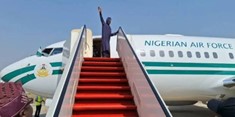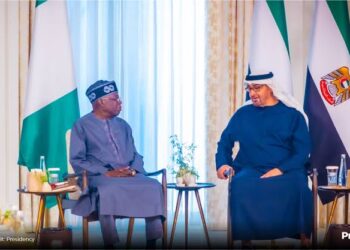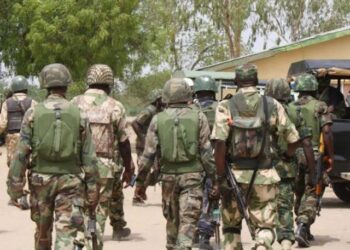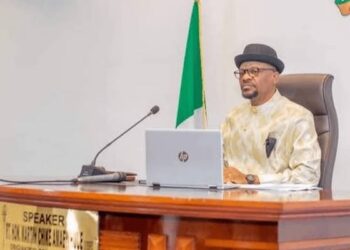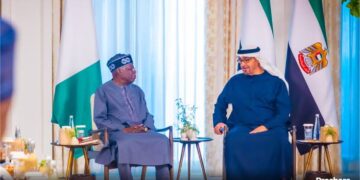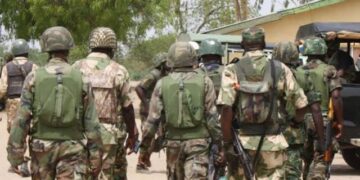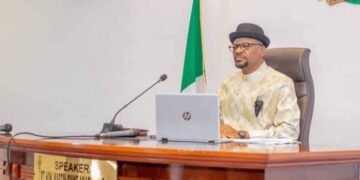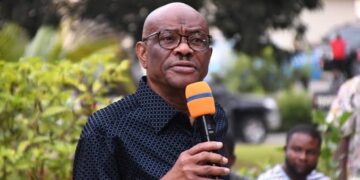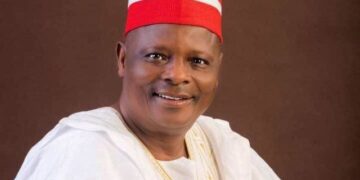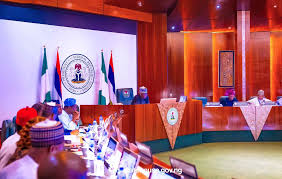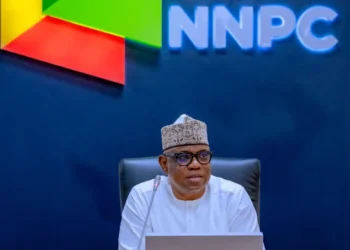A recent report reveals that the Nigerian government allocated a staggering N19.43 billion to maintain and operate the Presidential Air Fleet (PAF) between July 2023 and September 2024. This figure has sparked widespread debate and raised concerns about the federal government’s spending priorities, especially given the country’s current economic challenges.
The financial data, gathered by a civic tech platform that monitors government expenditures, shows that N13.55 billion, or 66% of the budgeted funds for 2024, was already disbursed within the first nine months of the fiscal year.
These payouts primarily covered operational costs and maintenance, with significant amounts labelled as “Forex Transit Funds,” designated for foreign exchange expenses incurred during international engagements.
The PAF, a fleet of aircrafts maintained by the Nigerian government for the exclusive use of the president, vice president, and other high-ranking officials, has consistently been a topic of public scrutiny due to its high operational costs. In 2024 alone, several large disbursements were made. Notable transactions include N1.52 billion in July 2023, divided into two payments of N846 million and N675 million, earmarked for “Presidential air fleet forex transit funds.”
The trend continued with monthly disbursements, including a hefty N3.1 billion released in August 2023 across three payments. Additional allocations were made in November 2023, with N1.26 billion deposited into the Presidential Air Fleet naira transit account. By March 2024, N2.54 billion had been disbursed, followed by significant payments in April (N6.35 billion), May (N4.97 billion), and July (N210 million). August 2024 saw the highest transaction frequency, with N5.60 billion released in six separate instalments.
Government sources explained that these funds are often used for essential expenses such as fuel purchases, overseas maintenance, and services conducted in foreign currencies. According to a senior official, “When aircraft on the fleet are abroad, payments are made in U.S. dollars or other foreign currencies to ensure uninterrupted operations.”
The spending surge is partly attributed to ongoing maintenance issues with older planes in the fleet. For instance, during President Tinubu’s two-nation tour to the Netherlands and Saudi Arabia in April 2024, the Presidential Boeing 737 jet was unavailable due to maintenance.
Consequently, the president chartered a private aircraft to continue his journey. In response to the increasing maintenance costs of aging planes, the government purchased a refurbished Airbus A330 in August 2024 for $100 million.
The newly acquired ACJ330-200, a nearly 15-year-old aircraft, boasts state-of-the-art avionics, a customized interior, and an advanced communications system. The President’s Special Adviser on Information and Strategy, Mr. Bayo Onanuga, justified the purchase, stating that the Airbus A330 would significantly reduce maintenance and fuel expenses, potentially saving Nigeria millions of dollars annually.
Onanuga emphasized that the aircraft was not a personal acquisition for the president but rather a strategic investment for the country. He remarked, “The new plane is not President Tinubu’s personal property; it belongs to the people of Nigeria. It is a much newer model compared to the previous one used by former President Buhari, which was purchased during President Obasanjo’s tenure over 20 years ago.”
Despite the government’s rationale, public reaction has been largely critical, with many Nigerians questioning the need for such extravagant spending. The Executive Chairman of the Centre for Anti-Corruption and Open Leadership, Debo Adeniran, expressed disappointment in the administration’s financial decisions, which he described as excessive.
Adeniran noted, “We expected a frugal approach from this administration, especially given the economic hardships faced by ordinary Nigerians. Instead, what we are witnessing is profligacy, reminiscent of the lavish spending of previous administrations.”
Aviation experts have also weighed in on the rising costs associated with maintaining the Presidential Air Fleet. Olumide Ohunayo, General Secretary of the Aviation Round Table, pointed out that the age of the aircraft and the devaluation of the naira have contributed significantly to the increased expenditure.
“As the naira depreciates against the dollar, the cost of training crew members, purchasing spare parts, and maintaining the aircraft expenses all paid in foreign currencies continues to rise,” Ohunayo explained. He also highlighted that the older the aircraft, the more frequent and costly its maintenance needs become.
The government’s decision to replace the aging Boeing 737 with the refurbished Airbus A330 is seen as a strategic move to curb these escalating maintenance costs. However, critics argue that acquiring another high-cost asset does not align with the need for budgetary prudence during times of economic strain.
The budgetary allocations for the Presidential Air Fleet have shown a marked increase over the years. From N4.37 billion in 2017, the allocation skyrocketed to N20.52 billion in 2024, a 370% increase over seven years. The most notable spikes occurred in 2018 and 2021, with budgets rising by 66.13% and 84.83%, respectively. The exception was in 2020 when the budget saw a slight decrease due to the global economic impacts of the COVID-19 pandemic.
Maintenance costs per aircraft have also risen significantly. Reports indicate that annual maintenance expenses for each aircraft range between $1.5 million and $4.5 million, depending on the model and condition. These high costs are partly why three out of the seven fixed-wing planes in the fleet are currently unserviceable.
The Presidential Air Fleet’s size and associated costs have long been contentious issues. Former President Muhammadu Buhari had pledged to reduce the number of aircraft in the fleet, putting three jets up for sale in 2023. However, efforts to sell two of these, a Dassault Falcon 7X and a Hawker 4000, have stalled due to reduced offers from potential buyers.
As Nigerians grapple with the government’s continued spending on luxury aircraft amid widespread economic challenges, calls for reform have grown louder. Aviation analyst Olumide Ohunayo summed up the sentiment: “It’s time for the government to reconsider its approach. Downsizing the fleet and prioritizing efficient management are essential steps towards restoring public confidence and ensuring that taxpayer funds are used more judiciously.”


